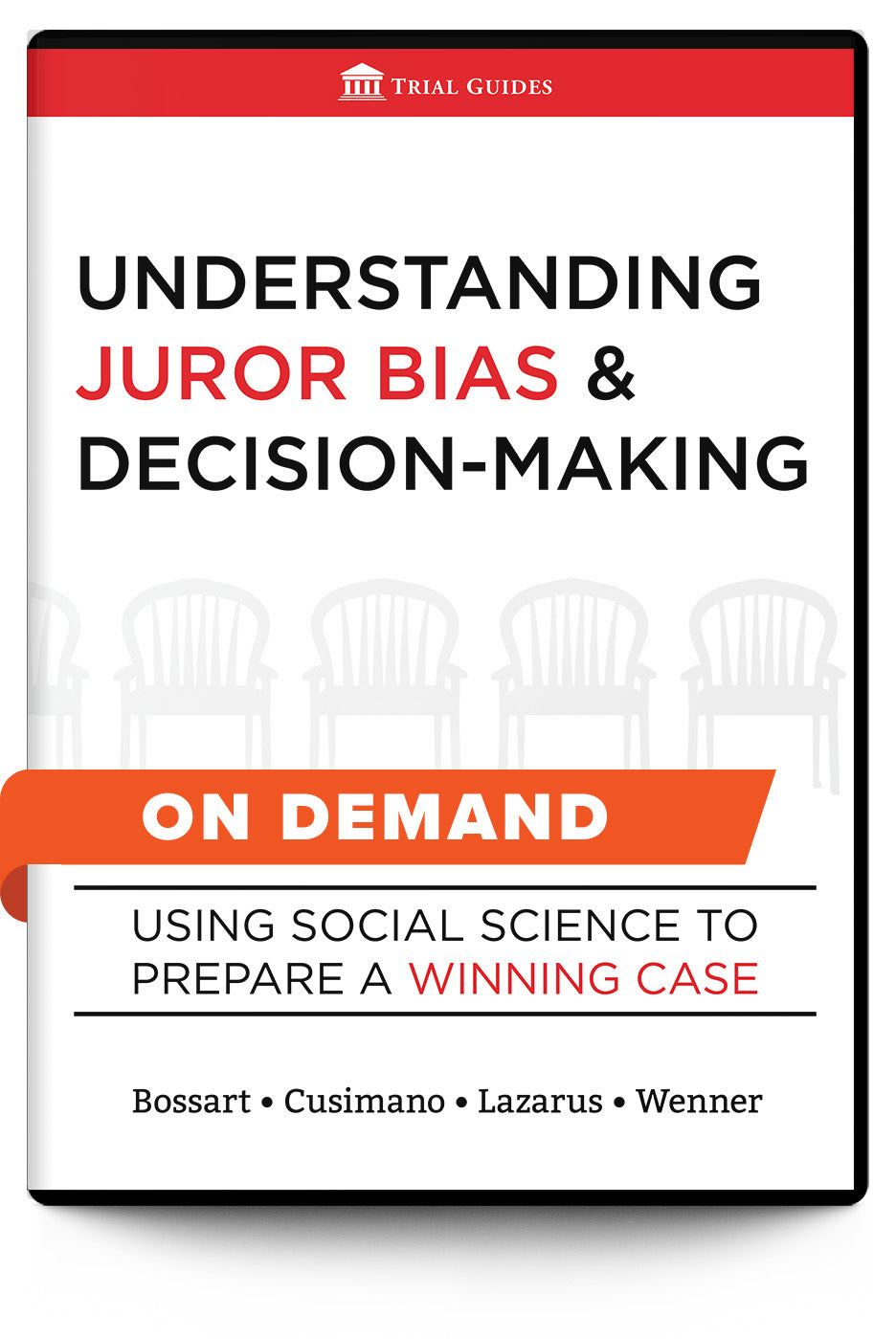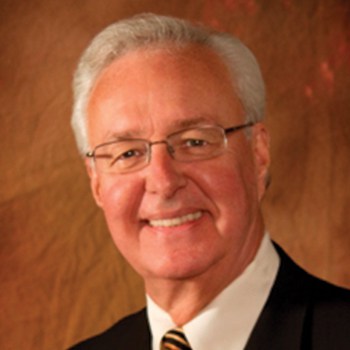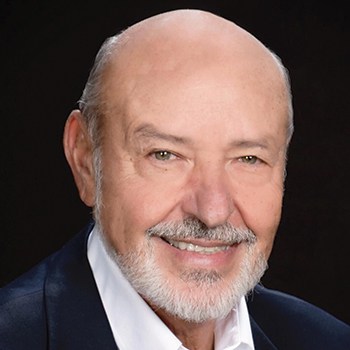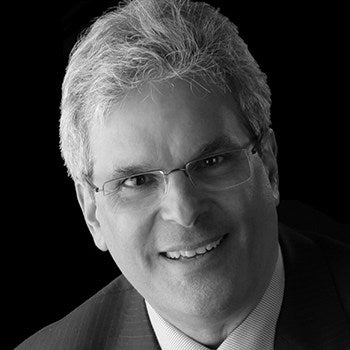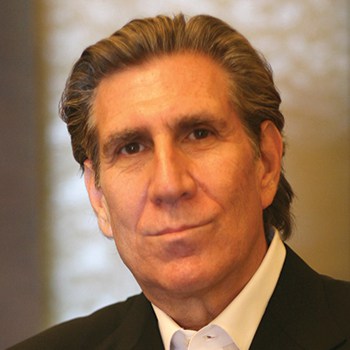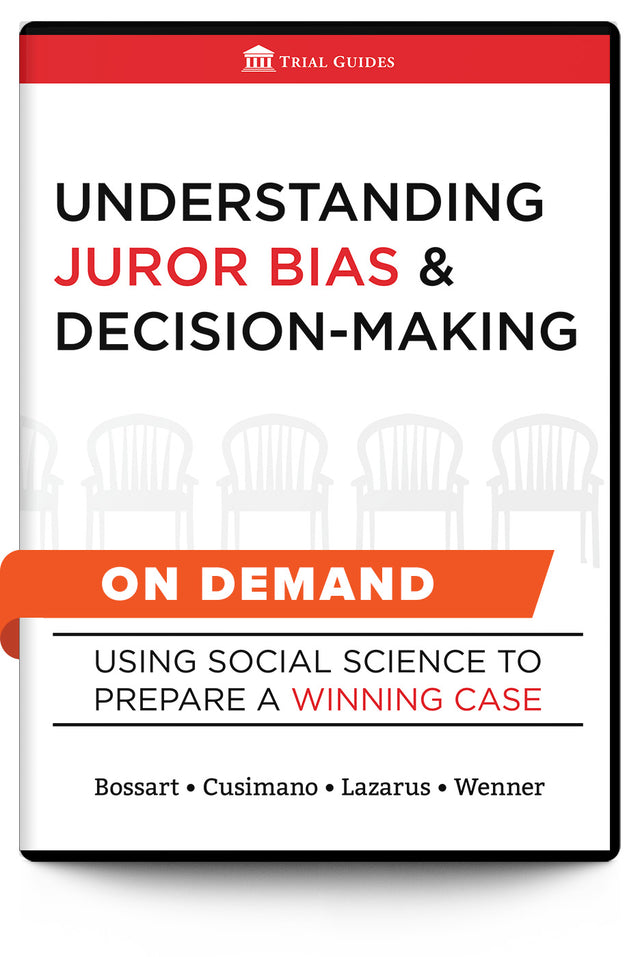Description
Description
Join Gregory Cusimano, David Wenner, and Edward Lazarus—three of the country’s top experts in jury bias—as they teach the tools and psychological principles that attorneys need to understand in order to better prepare and present their cases. Cusimano, Lazarus, and Wenner, with their partner David Bossart, have been involved in some of the most significant plaintiff’s verdicts in the country, totaling more than $4 billion combined. In this multipart presentation, they teach you how to use their two groundbreaking approaches to winning civil jury trials, The Jury Bias Model and Bottom-Up Case Preparation, to strengthen your cases—no matter the subject or venue—and better obtain fully just outcomes for your clients.
Over the course of 11 hours, these experts cover the following and more:
- The Jury Bias Model
- Bottom-Up Case Preparation
- Addressing jurors and the social science behind the process
- Developing a strategy and effective message to address the jury
- Moral foundation theory and the breadth of your story
- Dealing with bias and belief in the courtroom
- How jurors make decisions and the importance of listening
This presentation is the cumulation of decades of research from the team behind one of the leading trial consulting firms in the country. Winning Works™ members Greg Cusimano, David Wenner, David Bossart, and Edward Lazarus have combined their skill, experience, and research to create a highly successful approach that can be applied to any case, which they share over the course of this presentation.
A note to the viewer: though David Bossart helped prepare much of this presentation, he was unable to attend live and does not appear on camera.
This seven-part program focuses on the following:
Jury Bias Model & Bottom-Up Preparation: Part One (93 Minutes)
- Civil Justice
- How the Jury Bias Model Works
- Attitudes and Beliefs of Jurors
- General Beliefs
- Personal Responsibility
- Types of jurors
Jury Bias Model & Bottom-Up Preparation: Part Two (82 Minutes)
- Framing Your Case
- Ten Commandments to Address Jury Bias
- Narrative
- Confirmation Bias
- Belief Perseverance Principle
- Availability Principle
- Norm Principle
- Fundamental Attribution Error
- Hindsight Principle
- Empathy Principle
- Anchoring Principle
- Framing Principle
Addressing Jurors & the Social Science Behind the Process (78 Minutes)
- Changing Attitudes of Jurors
- Decision Making
- System Approach
- Bottom-Up Preparation Process
- The Social Science Behind the Process
- Building a Narrative
Developing a Strategy & Effective Message to Address the Jury (124 Minutes)
- Political Strategy and the Jury
- Principles of Effective Communication
- The Message
- Message Implementation Primer
- Developing a Core
- Framing your Message
Moral Foundation Theory & The Breadth of Your Story (76 Minutes)
- Moral Foundation Theory
- Foundation #1: Care Versus Harm
- Foundation #2: Fairness Versus Cheating
- Foundation #3: Loyalty Versus Betrayal
- Foundation #4: Authority Versus Subversion
- Foundation #5: Sanctity Versus Degradation
- The Breadth of Your Story
Bias & Belief in the Courtroom (97 Minutes)
- The Role of Bias in the Courtroom
- Automatic Thinking and Decision Making
- Using Psychological Understanding in your Case
- The Power of Belief
- The Importance of Facts
How Jurors Make Decisions, & the Importance of Listening (120 Minutes)
- How Jurors Make Decisions
- Role of the Plaintiff’s Lawyer
- Communication Theory
- Use in Trial
- Listening
- Storytelling
Click here for Access Instructions for On Demand Programs.
There are moments in this video that the audio from the speakers and audience members may be difficult to hear. We feel that despite this, the whole of the program offers invaluable insight that can still be gained despite some audio issues in a few sections.
Authors
Authors
Details
Details
On Demand Program: 665 minutes
Original Air Date: 9/21-22/2018

